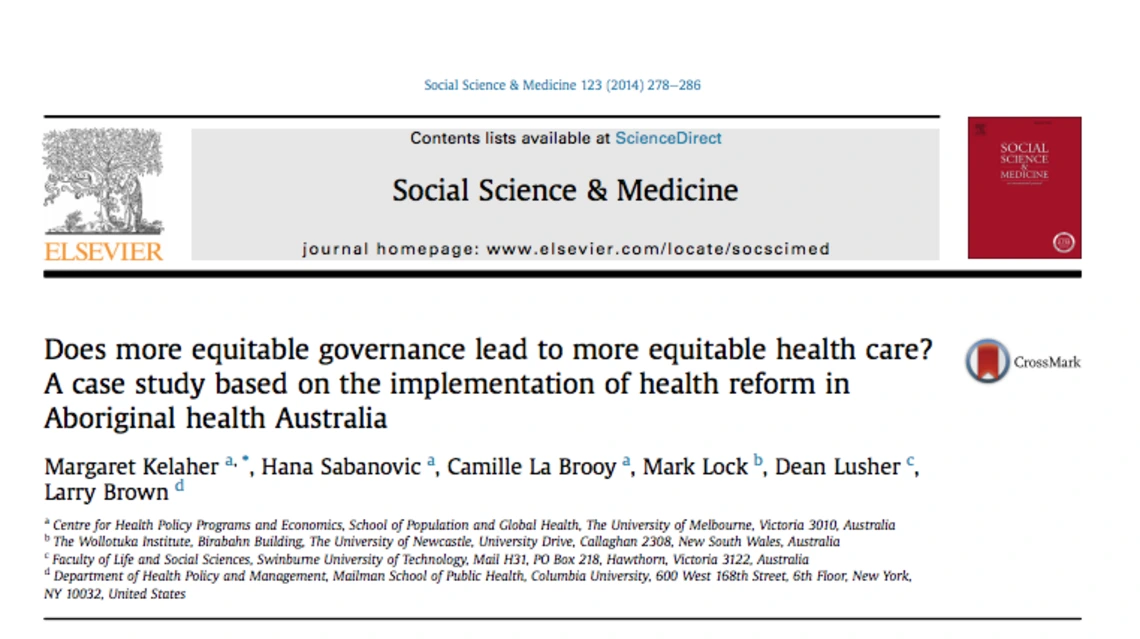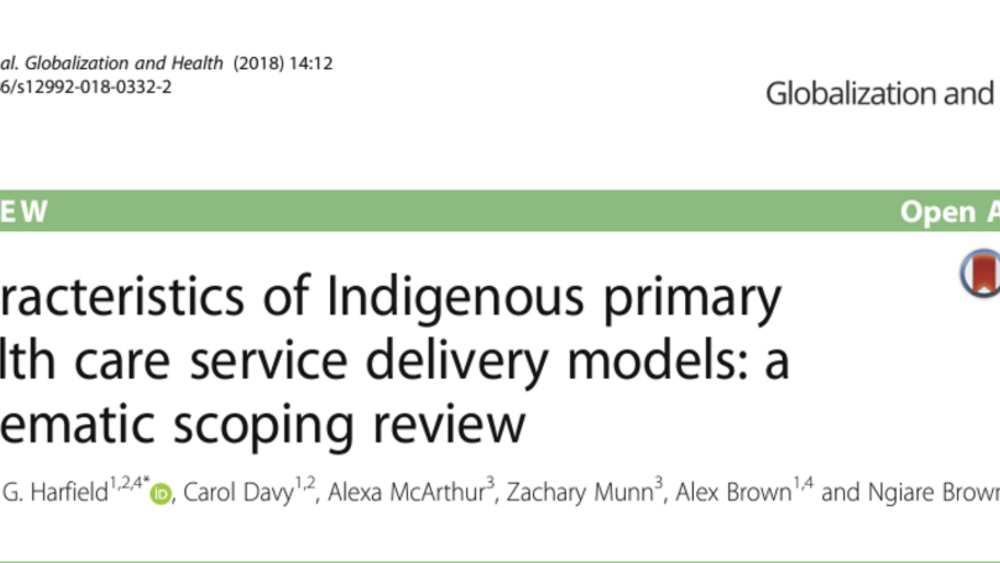There is growing evidence that providing increased voice to vulnerable or disenfranchised populations is important to improving health equity. In this paper we will examine the engagement of Aboriginal community members and community controlled organisations in local governance reforms associated with the Aboriginal Health National Partnership Agreements (AHNPA) in Australia and its impact on the uptake of health assessments.
The sample included qualitative and quantitative responses from 188 people involved in regional governance in Aboriginal health. The study included data on the uptake of Aboriginal health assessments from July 2008 to December 2012. The study population was 83190 in 2008/9, 856986 in 2009/10, 88256 in 2010/11 and 90903 in 2011/12. Logistic regression was used to examine the relationships between organisations within forums and the regional uptake of Aboriginal health assessments. The independent variables included before and after the AHNPA, state, remoteness, level of representation from Aboriginal organisations and links between Aboriginal and mainstream organisations.
The introduction of the AHNPA was associated with a shift in power from central government to regional forums. This shift has enabled Aboriginal people a much greater voice in governance. The results of the analyses show that improvements in the uptake of health assessments were associated with stronger links between Aboriginal organisations and between mainstream organisations working with Aboriginal organisations. Higher levels of community representation were also associated with improved uptake of health assessments in the AHNPA. The findings suggest that the incorporation of Aboriginal community and community controlled organisations in regional planning plays an important role in improving health equity. This study makes an important contribution to understanding the processes through which the incorporation of disadvantaged groups into governance might contribute to health equity.
Additional Information
Kelaher, M.,Sabanovic, H., La Brooy, C., Lock, M., Lusher, D., Brown, L. "Does more equitable governance lead to more equitable health care? A case study based on the implementation of health reform in Aboriginal health Australia." Social Science & Medicine. Volume 123. December 2014. Paper. (http://www.sciencedirect.com/science/article/pii/S0277953614004614, accessed April 5, 2023)


